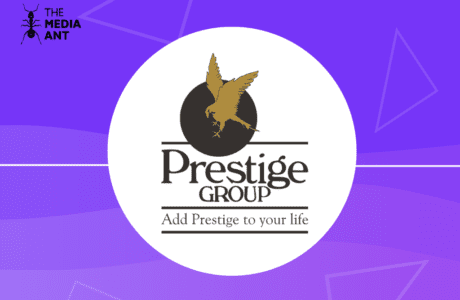In the ever-evolving digital landscape of 2025, where businesses are constantly bombarded with new marketing strategies and tools, there’s a timeless approach that has remained steadfast and effective which is organic marketing. As the world becomes more conscious of authenticity and sustainability, organic marketing stands out as a strategy that aligns with these values, offering genuine engagement without the overt sales pitch. This guide delves deep into the realm of organic marketing, shedding light on its definition, importance, and how businesses can harness its power to create lasting relationships with their audience.
What is organic marketing?

Imagine you’re a bee, buzzing around in a field of flowers. You’re not drawn to the flowers because they’ve paid for your attention, but because they naturally appeal to you. They’re colorful, they smell good, and they offer sweet nectar. This, my friends, is the essence of organic marketing.
Organic marketing is the process of attracting customers naturally over time, rather than using paid advertising methods. It’s about creating a digital environment so appealing, so engaging, that customers are drawn to it like bees to flowers. It’s about fostering genuine relationships with your audience, building trust, and ultimately, driving them to your business.
In this digital world, organic marketing involves using free tools and platforms to reach your audience. This includes search engine optimization (SEO), content marketing, social media marketing, email marketing, and more. It’s about creating high-quality content that resonates with your audience, optimizing it for search engines, and sharing it across various platforms.
Types of organic marketing

Source
Organic marketing is like a toolbox filled with different strategies and techniques. Let’s take a closer look at some of the most popular tools in the organic marketing toolbox.
Content Marketing
Content marketing is the heart and soul of organic marketing. It’s about creating and sharing valuable, relevant content that resonates with your audience. This could be anything from blog posts and videos to podcasts, infographics, eBooks, and more.
The goal of content marketing is to engage, educate, entertain, and inspire your audience. It’s about providing value, building trust, and establishing your brand as a thought leader in your industry. It’s not about hard selling, but about nurturing a relationship with your audience that ultimately leads to conversions.
SEO (Search Engine Optimization)
SEO is the magic wand that makes your content visible on search engines. It’s about optimizing your content and your website so that it ranks higher in search engine results. This involves using relevant keywords, creating high-quality backlinks, ensuring a user-friendly website design, and more.
SEO is crucial for organic marketing because it helps your content get discovered. Without SEO, your content is like a billboard in the desert – it doesn’t matter how good it is if no one sees it.
Social Media Marketing
Social media marketing is the megaphone that amplifies your content. It’s about using social media platforms to reach and engage with your audience. This involves sharing content, interacting with followers, and building a community around your brand.
Social media marketing is a powerful tool for organic marketing because it allows you to connect with your audience on a personal level. It’s a platform for conversation, for sharing ideas, and for building relationships. It’s not just about broadcasting your message, but about listening and responding to your audience.
Organic marketing pros and cons

Every coin has two sides, and organic marketing is no exception. Let’s take a look at the pros and cons. Some of the benefits of organic marketing are mentioned below.
Cost-Effective
Organic marketing is like a treasure hunt – it requires effort, but it can yield valuable results without costing a fortune. Unlike paid advertising, organic marketing primarily involves investing time and creativity rather than money.
This cost-effectiveness makes organic marketing particularly appealing for small businesses or startups with limited budgets. It allows them to compete with larger companies by leveraging their creativity and authenticity, rather than their financial resources.
Builds Trust
Organic marketing is about building genuine relationships with your audience. By providing valuable content and engaging with your audience, you can build trust and loyalty. This trust is crucial for converting prospects into customers and turning one-time buyers into repeat customers.
Trust is also a key factor in word-of-mouth marketing. When your audience trusts you, they’re more likely to recommend your brand to their friends and family. This can lead to a snowball effect, where your audience grows organically through referrals.
Long-Term Results
Organic marketing is a long-term strategy. It may take time to see results, but once you do, they tend to be more sustainable and grow over time. This is because organic marketing is about building a solid foundation of trust and loyalty, which can lead to a steady stream of traffic and conversions.
Unlike paid advertising, which often provides a temporary boost in traffic, organic marketing can provide a steady flow of traffic over time. This can lead to more consistent sales and a more predictable business model.
Organic Marketing Cons
Time-Consuming
Organic marketing is not a quick fix. It takes time to create high-quality content, build an audience, and climb the search engine rankings. This can be a challenge for businesses that need quick results or don’t have the resources to invest in a long-term strategy.
Creating high-quality content requires research, planning, writing, editing, and promotion. Building an audience requires consistent engagement on social media, email marketing, and other platforms. Climbing the search engine rankings requires ongoing SEO efforts, including keyword research, link building, and website optimization.
Unpredictability
Organic marketing can be unpredictable. It’s not always easy to know what content will resonate with your audience, how algorithms will change, or what trends will emerge. This requires a willingness to experiment, adapt, and learn.
For example, a blog post that you spent hours researching and writing may not get the traction you expected. A social media platform that you’ve invested in may change its algorithm, reducing your visibility. A trend that you’ve capitalized on may fade, requiring you to pivot your strategy.
Slow Growth
Organic growth is often slower than paid growth. It’s a marathon, not a sprint. This can be frustrating for businesses that want to see immediate results.
While paid advertising can provide a quick boost in traffic and conversions, organic marketing often requires a more patient and persistent approach. It’s about planting seeds and nurturing them over time, rather than expecting an immediate harvest.
Organic vs. Paid marketing

In the one corner, we have organic marketing, the long-term strategist, the relationship builder, and the trust earner, and in the other corner, we have paid marketing, the quick hitter, the visibility grabber, the immediate result achiever. Let’s dive deeper into this epic showdown.
Organic Marketing Features
Organic marketing is like a well-tended garden. It requires time, patience, and a green thumb. You can’t force a seed to sprout overnight, but with the right care and conditions, it can grow into a beautiful, fruitful plant.
In the digital world, this translates to creating high-quality content that provides value to your audience, optimizing this content for search engines, and engaging with your audience on social media and other platforms. It’s about building a solid foundation of trust and loyalty with your audience, which can lead to a steady stream of traffic and conversions over time.
Organic marketing is a long-term strategy. It may take months or even years to see significant results. But once you do, these results tend to be more sustainable and grow over time. This is because you’ve built a genuine relationship with your audience, and they’re more likely to stick around and continue engaging with your brand.
Paid Marketing Features
Paid marketing, on the other hand, is like a fireworks display. It’s flashy, it’s immediate, and it can grab a lot of attention. But once the fireworks are over, the sky goes dark again.
In the digital world, paid marketing involves paying for ads on search engines, social media platforms, and other websites. These ads can drive immediate traffic and conversions, as they can reach a large audience and target specific demographics.
Paid marketing is a short-term strategy. It can provide quick results, but these results tend to be less sustainable. Once you stop paying for ads, your visibility can drop, and your traffic and conversions can decrease. This is because paid marketing doesn’t necessarily build a long-term relationship with your audience.
Comparison
| Particulars | Organic Marketing | Paid Marketing |
Cost | More cost-effective as it primarily involves investing time and creativity rather than money. However, it can require resources for content creation and SEO efforts. | Can be more expensive as you are paying for a space. However, it can be more efficient in terms of time and effort. |
Results | Slow and steady. It takes time to build an audience and climb search engine rankings. The results are more sustainable and grow over time. | Quick and immediate. Can drive immediate traffic and conversions, but results can drop once you stop paying for ads. |
Audience Relationship | About building a genuine, long-term relationship with your audience. It’s about providing value, building trust, and fostering loyalty. | More transactional. It’s about getting your message in front of as many as possible, but it doesn’t necessarily build a long-term- relationship or trust. |
Strategy | A Long-term strategy. Requires patience and consistent effort. | Short-term strategy. Can provide quick results, but these results tend to be less sustainable. |
Visibility | Visibility grows over time as your content ranks higher on search engines and your audience grows. | Immediate visibility is due to paid ads, but visibility can drop once you stop paying for ads. |
Organic marketing examples

Theory is all well and good, but let’s bring organic marketing to life with some real-world examples.
Amul
Known as the “Taste of India,” Amul has consistently used organic marketing through its topical and witty cartoons that comment on current events. These cartoons shared widely on social media and print, generate discussions and keep the brand relevant without overt advertising.
Zomato
This food delivery and restaurant review platform has mastered the art of organic marketing on social media. Their quirky, relatable posts often go viral, creating buzz without the need for paid promotions.
Nykaa
An online beauty and wellness marketplace, Nykaa has effectively used content marketing by providing beauty tutorials, product reviews, and expert interviews on its platform. This not only drives traffic but also positions Nykaa as a trusted beauty advisor.
GoPro’s User-Generated Content
GoPro, the action camera company, has harnessed the power of user-generated content to create a thriving community of brand advocates. They encourage their customers to share their GoPro adventures on social media using the hashtag #GoPro. This not only provides GoPro with a constant stream of authentic content, but it also showcases the capabilities of its products in a real-world context.
Buffer’s Transparent Culture
Buffer, a social media management platform, has used its company culture as a marketing tool. They’re known for their radical transparency, sharing everything from their revenue and salaries to their hiring process and diversity stats. This transparency has helped Buffer build trust with their audience, differentiate themselves from their competitors, and attract like-minded customers and employees.
HubSpot’s Educational Content
HubSpot, a marketing software company, has established itself as a thought leader in the inbound marketing space. They offer a plethora of free resources, from blogs to webinars, which not only educate their audience but also draw’s organic traffic to their site.
FAQs
What is organic marketing called?
Organic marketing is often referred to as inbound marketing, natural branding, or earned media. It focuses on attracting customers naturally over time without paid advertisements.
How is organic marketing done?
Organic marketing is done by creating high-quality content, optimizing for search engines (SEO), engaging on social media, and building genuine relationships with audiences without direct payment.
What are the characteristics of organic marketing?
Organic marketing is characterized by its cost-effectiveness, long-term approach, focus on building trust, reliance on high-quality content, and emphasis on genuine audience engagement.
Why is organic marketing better?
Organic marketing is considered better for building long-term relationships, fostering trust, achieving sustainable results, and offering cost-effective solutions compared to paid strategies.
What are the examples of organic marketing?
Examples of organic marketing include blog posts, SEO efforts, user-generated content, social media engagement, and word-of-mouth referrals.





